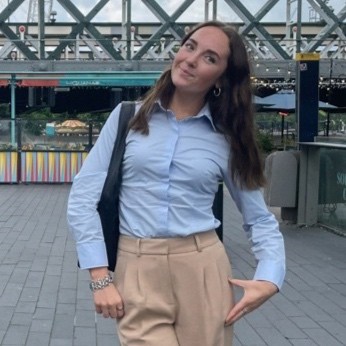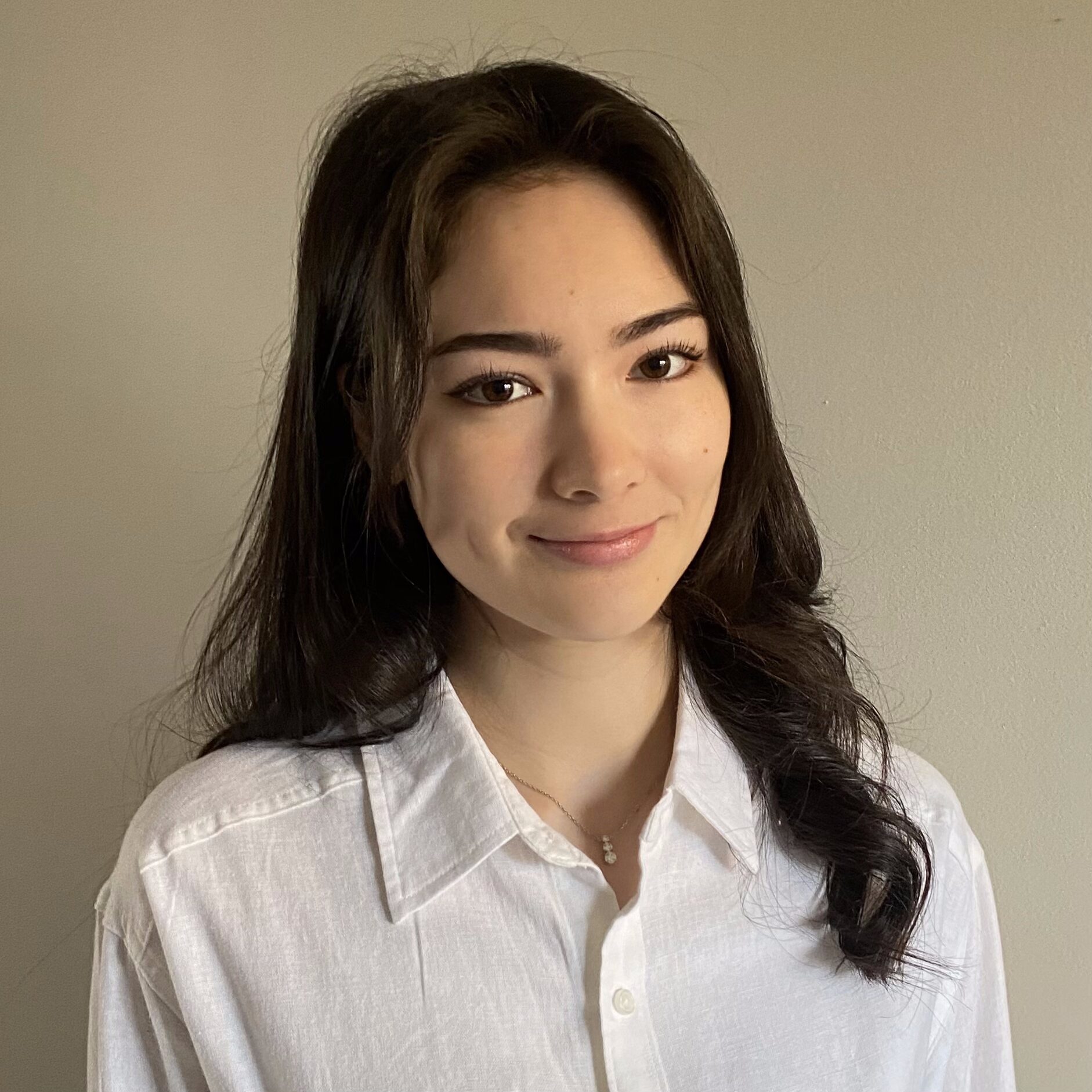“Encouraging the next generation to participate in the political system and affect positive change in society is vital for a healthy democracy. Patchwork Foundation is creating a space to make politics more accessible, and I credit you for the exemplary impact you are having.”
Overcoming the Odds: A Masterclass from No.10 Downing Street
Emma Cameron is a final-year International Relations student at the London School of Economics and Political Science. She has studied courses in International Relations, Politics, History, and Spanish. She has a key interest in studying conflict and gender. She was previously the Events Officer in the Equality in Education Society at LSE, creating events to help diminish the gap between privileged and underprivileged students. Before this, she volunteered in youth groups and schools, helping young people from disadvantaged areas reach their potential.
As part of the ‘Sustainables’ cohort, I recently had the wonderful opportunity to attend a Masterclass delivered by Alice Matthews (Director of the No. 10 Delivery Unit) and Samiul Chowdhury (Deputy Director for Crime and Communities in the No. 10 Delivery Unit) at 10 Downing Street, chaired by fellow Patchworker Aiyesha Swarnn. We had the honour of first receiving a tour of No. 10 before sitting down and hearing about the experience of working at No. 10, what we can take from the speakers’ career paths, and their learning curves along the way.
This Masterclass presented a rare opportunity for those outside the Programme: to speak to those at the heart of British politics right where it happens. My fellow Patchworkers recognised this and came armed with wonderful questions to gain the most from the experience.
While I assumed that Alice and Samiul’s weeks would be busy, it was very insightful to hear how they managed it. A vital takeaway for me was the discussion about navigating working in fast-paced environments like No. 10. It was reinforced that you learn it through trial and error but highlighted that there is a need to distinguish between what is important and what is urgent. A desire to focus on the most important topics can lead to you seeming very busy but always having a long to-do list and not being able to approach the work with calmness and control. It was very refreshing to hear about the shared experience of struggling with a busy workload. It felt both motivating and reassuring that the key to that is being open to learning how to adapt – you do not have to have everything figured out at the beginning; you just need to be open to figuring it out.
One of the obstacles that stops many people from underprivileged backgrounds from entering politics is the worry that, in some way, everyone else in the room will be smarter or more qualified to be there. This Masterclass echoed something that I have realised is a pattern among many of the speakers of the Masterclasses I have attended – while we often feel undeserving to be in their presence, they often feel intimidated to be speaking to us, too. And while that intimidation feels warranted, it is often not. This highlighted to me that despite the important job role titles, working in iconic buildings and around very powerful people, these people are still just human. Many of them have just worked very hard to be there.
This Masterclass also taught me how not to victimise yourself in the face of obstacles. Sometimes, the best thing to do when facing obstacles at work is to repurpose the role in your mind – for example, to worry that you are least qualified to be in a space is instead to reassure yourself that you will not take the importance of that role for granted and that you will be most prepared out of everyone because of that. This is something that I find really aligns with much I have learned from Patchwork’s ethos: that people from underprivileged backgrounds deserve to be in politics, and it is perhaps this mentality that British politics is missing. Another example where this was discussed was when the session touched upon the benefit of changing careers – while it may feel like you are struggling to find your place, what you are actually doing is collecting a wide range of diverse experiences that will serve you better in every role from then on. The ability to see the perspectives of different groups of people, which is very important in a role such as one in the Delivery Unit of No. 10, comes from intentionally placing yourself in a range of roles, from meeting diverse groups of people and from being open to hearing what people have to say – much like in the Masterclass Programme.
The Masterclass then focused on the challenges of COVID-19 on various roles within the Civil Service and how this affected a wider range of policies than would be expected. Since policy outside of healthcare was being focused on less, it made the challenge to overcome the obstacles that COVID presented even harder. However, the biggest challenges can become some of the most rewarding of your career, and it is important to recognise the challenge for what it is in the moment – it is not a failure of your capability but a chance to expand and change how you work and create a more efficient and fulfilling experience. It is not just a challenge but an opportunity.
In conclusion, this Masterclass taught me so much – but what I will take away most is the wholehearted belief that Alice and Samiul had in being yourself. The Masterclass programme is aimed at people from underprivileged backgrounds and teaches us how politics would benefit from the diverse experiences and perspectives we can offer. To end the Masterclass journey, being told the same thing in 10 Downing Street felt very poignant.
Emma Cameron, 2023 Masterclass Participant
Stay updated
Join our mailing list to stay up to date with all the latest!


